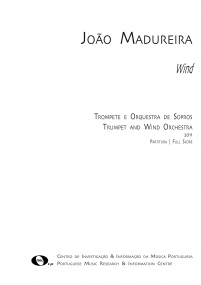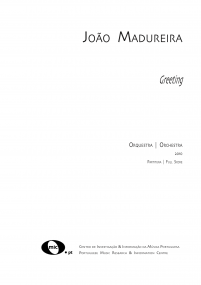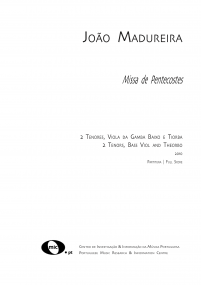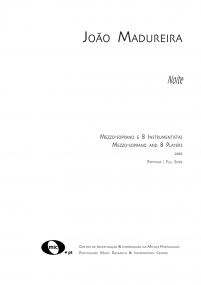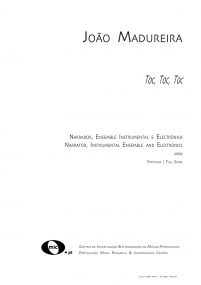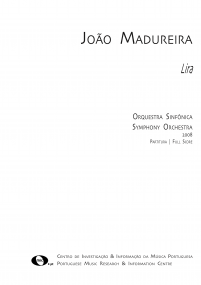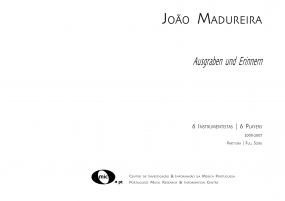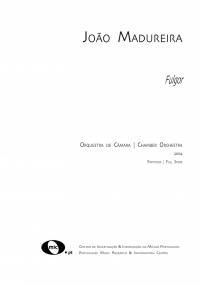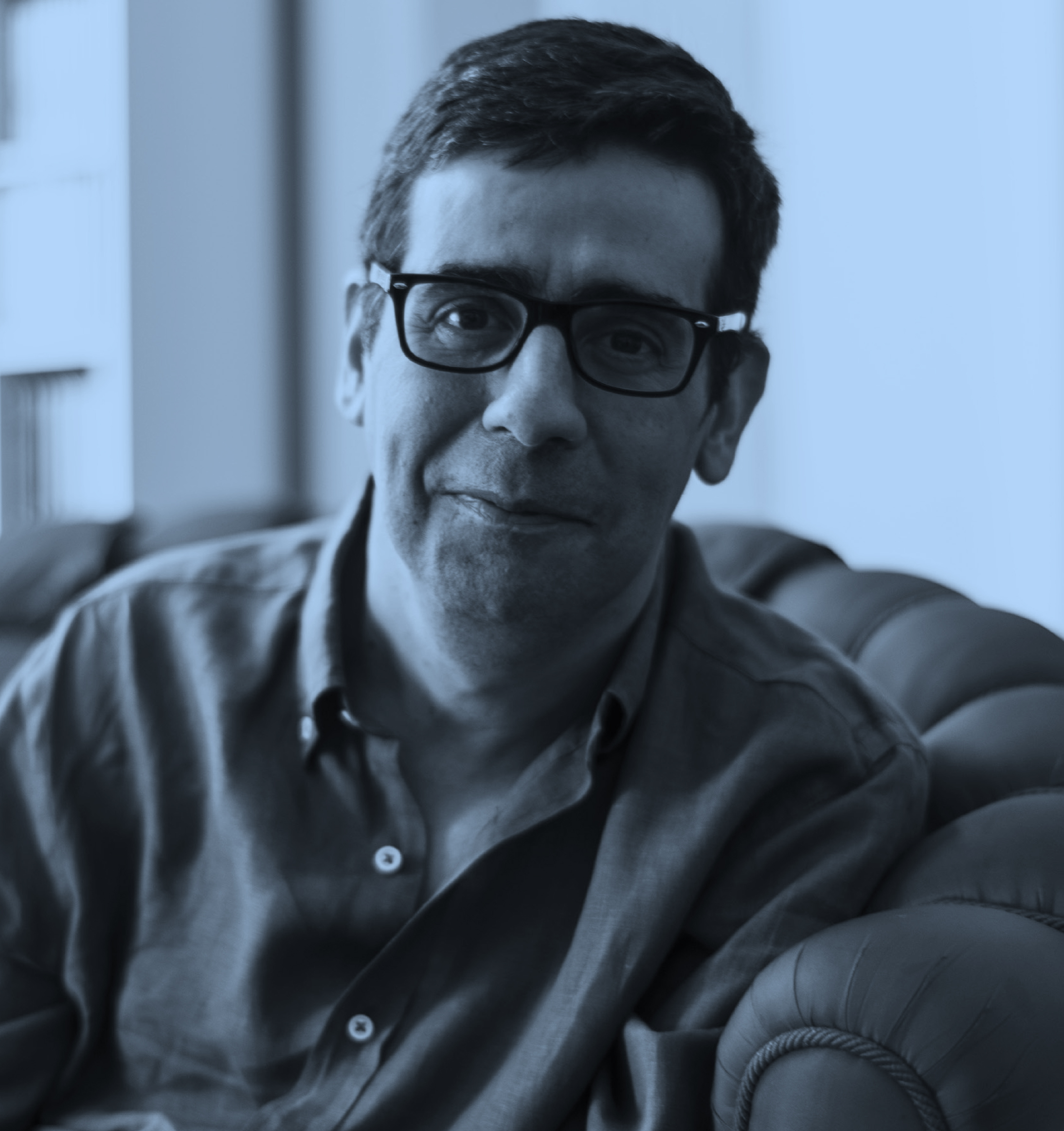
Joao Madureira
Play all audio recordingsBorn in Lisbon 1971, João Madureira made his degree in composition at the Lisbon Superior School of Music, where he studied with António Pinho Vargas and Christopher Bochmann. He also studied with Franco Donatoni, York Höller and Ivan Fedele. His works are regularly performed in Portugal and abroad by various renowned ensembles. He has also received commissions from various Portuguese and international institutions.
Discreetly expressive, secretly lyrical and yet full of energy and vigorous… João Madureira's music is neither traditional nor avant-garde, neither tonal nor atonal; it is a personal statement on the world's immense diversity.
In the Portuguese contemporary music world João Madureira has a significant position. Apart from composition he is active in the field of teaching at the Lisbon Superior School of Music and presides the Installation Committee of Archipelago (Arquipélago), Portuguese Composers Association. According to the composer, contemporary music environment in Portugal needs more union between the people involved.
He considers contemporary creation as an integral part of western music’s evolution, and thus his language integrates various “ruptures” from the history of 20th century music, employing techniques from different periods, contemporary (spectralism) and the past. Another component essential in João Madureira's music has to do with the relations between music and text, what has constituted the subject of his research.
Discreetly expressive, secretly lyrical and yet full of energy and vigorous… João Madureira's music is neither traditional nor avant-garde, neither tonal nor atonal; it is a personal statement on the world's immense diversity.
In the Portuguese contemporary music world João Madureira has a significant position. Apart from composition he is active in the field of teaching at the Lisbon Superior School of Music and presides the Installation Committee of Archipelago (Arquipélago), Portuguese Composers Association. According to the composer, contemporary music environment in Portugal needs more union between the people involved.
He considers contemporary creation as an integral part of western music’s evolution, and thus his language integrates various “ruptures” from the history of 20th century music, employing techniques from different periods, contemporary (spectralism) and the past. Another component essential in João Madureira's music has to do with the relations between music and text, what has constituted the subject of his research.
Ordered by year. Most recent works appears first
or trumpet and wind orchestra
Joao Madureira
for orchestra
Joao Madureira
for ensemble
Joao Madureira
for mezzo soprano and ensemble
Joao Madureira
for narrator, ensemble and electronics
Joao Madureira
for orchestra
Joao Madureira
for 6 instruments
Joao Madureira
for chamber orchestra
Joao Madureira
Results 1 - 8 of 8
Ensemble (Instruments or Voices) and Fixed Electronic Media
Toc Toc Toc for narrator, ensemble and electronics (2009)
Ausgraben und Erinnern for 6 instruments (2007)
Fulgor for chamber orchestra (2004)
Greeting for orchestra (2010)
Lira for orchestra (2008)
Missa de Pentecostes for ensemble (2010)
Noite for mezzo soprano and ensemble (2010)
Toc Toc Toc for narrator, ensemble and electronics (2009)
Wind or trumpet and wind orchestra (2011)
Fulgor for chamber orchestra (2004)
Greeting for orchestra (2010)
Lira for orchestra (2008)
Missa de Pentecostes for ensemble (2010)
Noite for mezzo soprano and ensemble (2010)
Toc Toc Toc for narrator, ensemble and electronics (2009)
Wind or trumpet and wind orchestra (2011)

